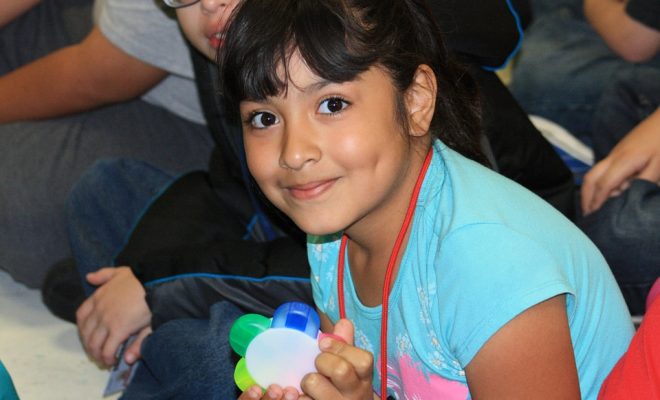A Parent’s Guide to Accommodations

Accommodations are tools or processes that gives equal access to the teaching and learning process for learners with disorders. Kids with cognitive challenges often face barriers to learning. For instance, if your kid is hyperactive they may not be able to sit still long enough to do math problems. If they have reading issues, they may struggle to learn history from a traditional textbook. Fortunately, there are changes in the class—called accommodations—that can remove these barriers.
Accommodations Defined
Accommodations are alterations that remove obstacles and provide your kid with equal access to learning. Accommodations don’t change what your kid is learning. Rather, they change how your kid is learning.
Here’s a classic example. Let’s say your kid is taking an American history class, but they struggle with reading. As an accommodation, the educator lets them listen to an audiobook version of the textbook.
By utilizing an audiobook, they can learn history without their reading issues getting in the way. This has removed a barrier to their learning.
Accommodations don’t change what your kid is expected to know or learn. They don’t lower expectations. Your kid may utilize an audiobook in American history, but they’d still be expected to learn about events like the Civil War. And they still must finish all assignments and take exams just like their peers. The accommodation simply helps them work around their challenges.
This is what makes accommodations distinct from modifications. A modification changes what your kid is expected to know or learn. For instance, in American history, a modification may be that a kid only needs to learn half of the textbook’s content.
Forms of Accommodations
Accommodations work at an optimal level when they target a key barrier or challenge. For instance, for the kid who can’t sit still to do the math, an accommodation may be frequent breaks. For the kid who struggles to write out answers on tests, an accommodation may be to give answers verbally. The accommodation matches the need.
Here are four categories of accommodations for distinct needs.
- Presentation: An alteration in the way information is presented. Example: Letting a kid listen to audiobooks instead of reading printed text.
- Response: An alteration in the way a kid finishes assignments or tests. Example: Providing a keyboard to a kid who struggles with handwriting when they write an essay.
- Setting: A. alteration in the environment where a kid learns. Example: Allowing a kid with ADHD to take a test in a separate room with fewer distractions.
- Timing and scheduling: An alteration to the time a kid has for a task. Example: Providing extra time on homework assignments for a kid who has a slow processing speed.
Requesting Accommodations for Your Child
If you think accommodations may help your kid, talk to their educator. Often, the educator may agree to informal supports. These simple changes don’t mandate paperwork. For example, it is easy for the educator to move your kid’s seat away from a noisy class door that’s distracting.
If your kid needs bigger changes, however, you may want to seek formal accommodations. Under federal law, kids with disorders have the right to equal access to learning. This means accommodations for their disorders, which can include cognitive challenges. To exercise this right, you must request that the school assess your kid.
The evaluation results can mean an IEP or a 504 plan for your kid. You and the school decide what accommodations to write into the plan. Legally this must also cover any accommodations on state tests.
However, just because an IEP or a 504 plan lists accommodations doesn’t mean they’re always followed in the class. It’s still essential to check in with the educator. And it’s essential to talk with your kid about how the accommodations are working.
Schools are open to providing accommodations. The larger challenge is choosing the right accommodations and keeping track of which ones are most helpful.
If accommodation is in place, but your kid isn’t utilizing it, find out why. If your kid gets accommodations on state tests, it’s essential to utilize them regularly in class. This helps them get familiar with the accommodations.
Accommodations Away From the Classroom
Cognitive challenges don’t just create challenges in school. They also affect life outside of school. That’s why accommodations also exist outside the class. Instead of allowing an equal opportunity to learn, they provide an equal opportunity to be involved.
Accommodations can apply to many activities and events. You may see them implemented in driver’s tests, the workplace, summer camps, sports clubs, and even Six Flags.
Some of these accommodations are given informally. During and away from the school, kids with disorders have a legal right to reasonable accommodations.






